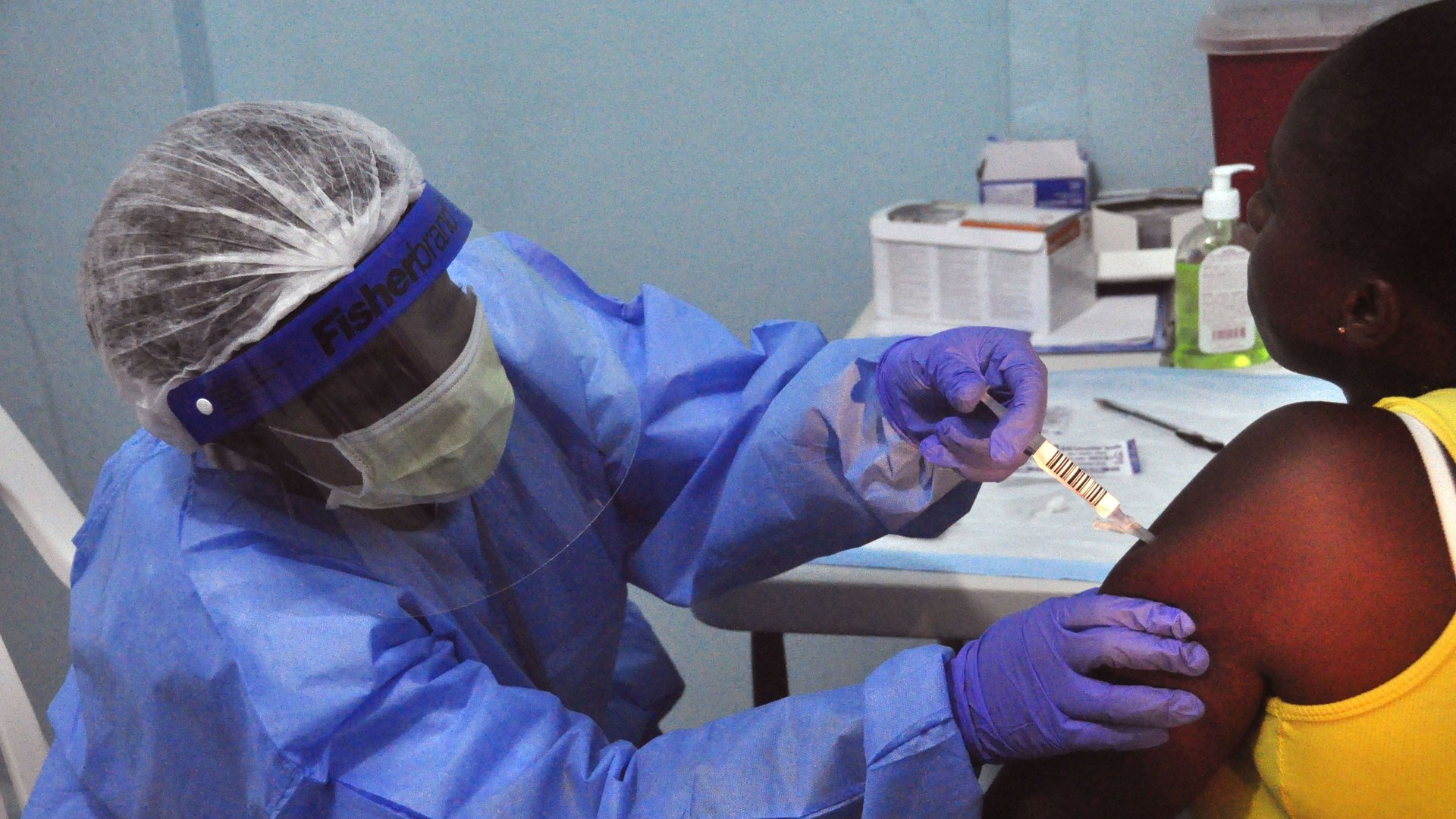We’re closer than ever to an Ebola vaccine
The ongoing Ebola epidemic in West Africa, which has killed over 10,000 and is still ongoing—79 new cases were reported this week. Its persistence has resulted in a push for researching new treatments and the involvement of big pharmaceutical companies, which had previously been accused of delaying the research on an Ebola cure for profit concern. In particular the development of a vaccine against Ebola might be the most effective way to control future epidemics and, as vaccine expert Orin Levine told Quartz in February, “because of the urgency of the Ebola emergency in West Africa we’ve been able to really accelerate the timeline of development, so Ebola [vaccine] may be closer than we think.”


The ongoing Ebola epidemic in West Africa, which has killed over 10,000 and is still ongoing—79 new cases were reported this week. Its persistence has resulted in a push for researching new treatments and the involvement of big pharmaceutical companies, which had previously been accused of delaying the research on an Ebola cure for profit concern. In particular the development of a vaccine against Ebola might be the most effective way to control future epidemics and, as vaccine expert Orin Levine told Quartz in February, “because of the urgency of the Ebola emergency in West Africa we’ve been able to really accelerate the timeline of development, so Ebola [vaccine] may be closer than we think.”
Indeed, a month later the progress is steady: Ebola is a deadly but not terribly complex virus—and a study published today, March 26, in Science has also shown that it does not mutate as quickly as previously feared, which means that “current diagnostic methods, vaccines and other treatment interventions should still be effective against the virus.” The virus is unlikely to change while trials are developed: this is good news both because it means the virus is not as complex as some believed, and that treatments and vaccination can be developed in a faster and more effective manner, since it won’t be necessary to continuously deal with new iteration of the pathogen.
Developing a vaccine against Ebola is proving to be an easier task than for malaria, which is a parasite and, as Levine explained, “very crafty”—or hard to cover with a vaccine. The same goes with an AIDS vaccine, which Levine says, poses ”a supremely complex scientific problem,” while “Ebola ironically might be less a scientific challenge.”
Several vaccines against Ebola, based on both inactivated and live viruses, are in different stages of clinical trial, though concerns about their safety and effectiveness remain high, and at times have caused trials to end. One vaccine, based on a portion of the live virus, is being tested by pharmaceutical company Merck in Guinea, though there are concerns about the side effects that a live vaccine could cause. Netherland-based Johnson & Johnson’s Crucell NV,US-based NewLink Genetics (in collaboration with German Merck) and Danish Janssen Pharmaceutical, also a division of Johnson & Johnson are all involved in the development of different vaccines for Ebola.
And other promising independent research, detailed in Science is approaching the vaccine from a different route. An international research team led by US National Institutes of Health’s researcher Andrea Marzi and University of Wisconsin’s Peter Halfmann has developed a whole virus vaccine, which might prove to be both safer and more effective than others previously tested. Instead of being made out of part of the virus, this vaccine comprises the whole inactivated virus, albeit modified to lack an essential viral gene, with the aim of generating a broader immunity response. The whole virus vaccine has been proven effective on macaques, which are considered the “gold standard” for trial on Ebola vaccines and suggest effectiveness on humans too. While a human trial hasn’t yet started and the timeline for further testing hasn’t yet been disclosed, this adds another valuable route to the fast development of a safe and effective vaccine.